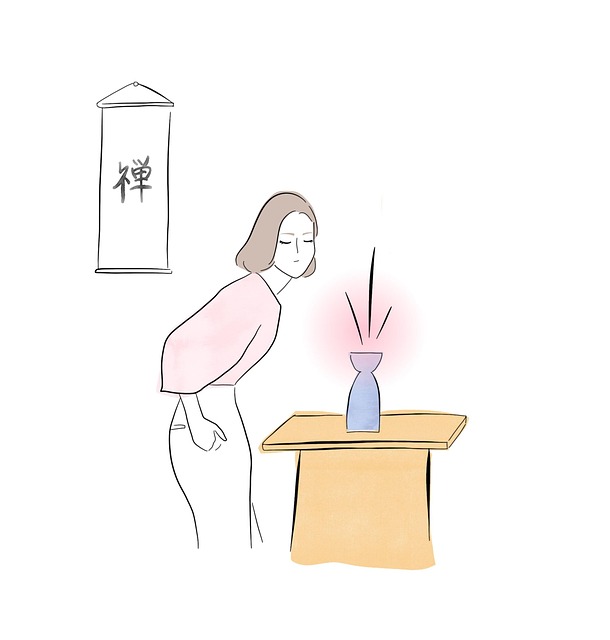Burnout among healthcare providers is a growing concern impacting both individual well-being and patient care quality, driven by high-stress work environments. Strategies like mental wellness journaling, exercise, and podcast series can offer respite and self-care opportunities. Longmont Oppositional Defiance Disorder (ODD) Therapy provides solutions by addressing emotional and behavioral issues that contribute to burnout, equipping professionals with coping mechanisms for stress management. Creating supportive work environments through empathy-building training, open communication channels, and integrating mental health policies are crucial. Empowering healthcare providers to prioritize self-care practices like exercise and mindfulness reduces risk, while Longmont ODD Therapy targets root causes of resistance and defiance for a healthier, more resilient workforce.
Healthcare provider burnout is a growing concern, impacting not only individual well-being but also patient care. This article explores comprehensive strategies to prevent and mitigate burnout among healthcare professionals. We delve into understanding the root causes, from identifying risk factors like long working hours to addressing emotional demands. Key areas covered include fostering supportive work environments, encouraging self-care practices, and integrating specialized therapies like Longmont Oppositional Defiance Disorder Therapy for mental health support.
- Understanding Burnout Among Healthcare Providers
- Identifying Risk Factors for Burnout
- Creating a Supportive Work Environment
- Implementing Self-Care Practices for Sustainability
- Integrating Specialized Therapies: Longmont Oppositional Defiance Disorder Therapy as an Example
Understanding Burnout Among Healthcare Providers

Burnout among healthcare providers is a growing concern, impacting not just individual well-being but also patient care and overall healthcare system quality. It manifests as emotional exhaustion, depersonalization, and reduced personal accomplishment, often stemming from prolonged exposure to high-stress work environments. Healthcare professionals, like those seeking Longmont Oppositional Defiance Disorder Therapy, face unique challenges that can lead to burnout if unaddressed.
Understanding burnout requires acknowledging the constant demand for care coupled with often unrealistic expectations. Mental wellness journaling and exercise guidance can offer much-needed respite and self-care opportunities. Additionally, incorporating mind over matter principles through mental wellness podcast series production can help professionals reframe stress responses and cultivate resilience. These strategies are essential tools in prevention, fostering a healthier work-life balance and enhancing the overall mental wellness of healthcare providers.
Identifying Risk Factors for Burnout

Burnout among healthcare providers is a growing concern, with numerous risk factors contributing to this issue. One significant factor is the high-stress environment in which these professionals operate daily, often dealing with challenging patient cases and demanding work schedules. Longmont Oppositional Defiance Disorder (ODD) Therapy can play a crucial role in identifying and addressing underlying emotional and behavioral issues that may increase burnout vulnerability. By providing specialized therapy, healthcare providers can learn coping mechanisms to manage stress and prevent its negative impact on their mental well-being.
Additionally, a comprehensive risk assessment for mental health professionals is essential. This includes evaluating personal resilience, work-life balance, and the support systems in place. Healthcare Provider Cultural Competency Training and Social Skills Training are valuable tools to enhance the help-seeking culture among colleagues and foster better interpersonal connections, reducing feelings of isolation. Recognizing these risks early on can enable healthcare providers to implement preventive measures, ensuring they maintain their well-being and avoid burnout.
Creating a Supportive Work Environment

Creating a supportive work environment is an essential aspect of healthcare provider burnout prevention. Hospitals and clinics can foster such environments by implementing empathy-building strategies that promote understanding and connection among staff members. This includes training in active listening, cultural competency, and emotional intelligence, which help providers feel valued and appreciated. A culture that encourages open communication, where concerns and challenges can be discussed freely without fear of reprisal, is particularly important.
Longmont Oppositional Defiance Disorder (ODD) therapy techniques, for example, can be adapted to create a more harmonious workplace. These strategies focus on improving conflict resolution skills and fostering positive interactions. Additionally, integrating Mental Health Policy Analysis and Advocacy into healthcare institutions’ policies ensures that staff have access to resources and support tailored to their unique needs. Encouraging Self-Care Routine Development for Better Mental Health is another effective approach, promoting healthy habits like regular exercise, adequate sleep, and mindfulness practices among healthcare providers.
Implementing Self-Care Practices for Sustainability

In the demanding landscape of healthcare, preventing burnout among providers is paramount to sustaining quality patient care. One effective strategy lies in empowering professionals to prioritize self-care practices. This involves encouraging regular exercise, sufficient sleep, and mindfulness techniques like meditation or deep breathing exercises to manage stress levels. By fostering a culture that values and incorporates these sustainable habits, healthcare organizations can mitigate the risks of burnout and enhance overall well-being among their workforce.
For mental health professionals specifically, such as those offering Longmont Oppositional Defiance Disorder Therapy, self-care is not just a personal choice but a professional necessity. Regular engagement in activities that boost self-esteem and emotional resilience can significantly reduce symptoms of anxiety and stress. This includes seeking support from colleagues, participating in peer supervision groups, and undergoing regular risk assessments for mental health to identify potential triggers or vulnerabilities early on. Such proactive measures contribute to a healthier, more resilient workforce capable of providing optimal patient care.
Integrating Specialized Therapies: Longmont Oppositional Defiance Disorder Therapy as an Example

In the quest to prevent healthcare provider burnout, integrating specialized therapies can offer a fresh perspective and novel solutions. One such therapeutic approach gaining traction is Longmont Oppositional Defiance Disorder (ODD) Therapy. This method goes beyond traditional stress management techniques by focusing on the root causes of resistance and defiance often associated with ODD. By employing tailored strategies, therapists help healthcare providers develop enhanced coping mechanisms and improve their ability to manage challenging patient interactions.
Longmont ODD Therapy emphasizes the importance of self-care practices, encouraging professionals to establish a robust self-care routine for better mental health. This includes activities that boost confidence, foster resilience, and promote a sense of balance. By adopting these strategies, healthcare providers can mitigate burnout risks, enhance job satisfaction, and ultimately improve patient outcomes.
Healthcare provider burnout is a pressing issue, but through understanding its causes and implementing effective strategies, we can create a more supportive and sustainable work environment. By identifying risk factors, fostering a culture of support, encouraging self-care practices, and integrating specialized therapies like Longmont Oppositional Defiance Disorder Therapy, healthcare organizations can prevent burnout and promote the well-being of their providers. These measures are crucial in ensuring high-quality patient care and retaining dedicated professionals in the long term.














